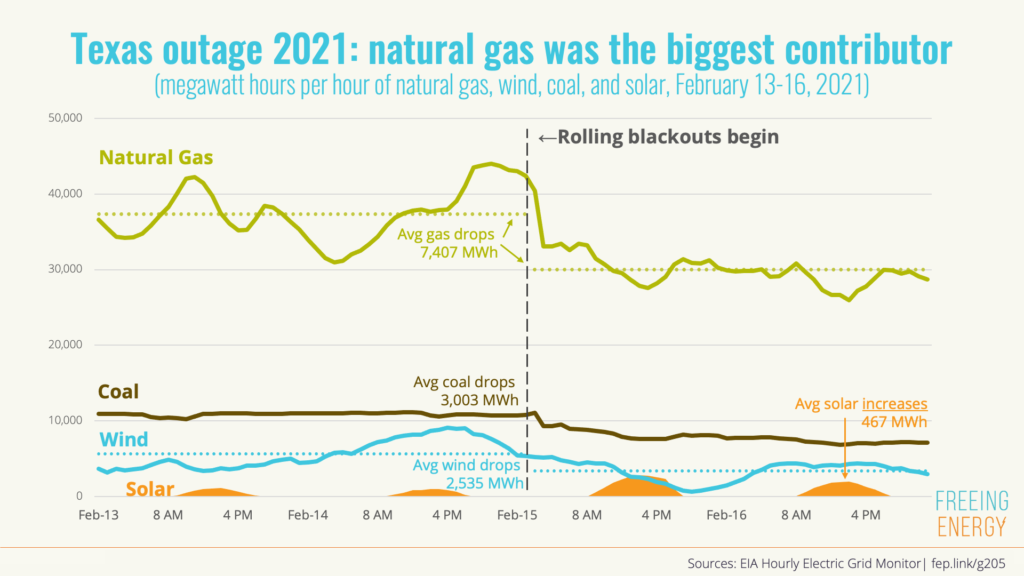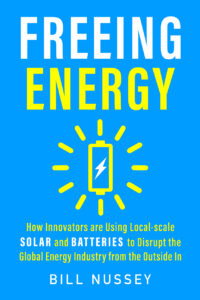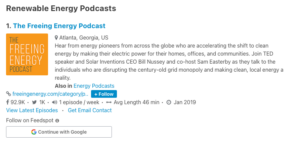Clean energy became one of the hottest topics in the US in early 2021. This was, in part, thanks to the new administration’s climate-focused cabinet picks and their overall emphasis on clean energy. Sadly, the biggest clean energy headlines in February came from Texas, which experienced one of the worst power outages in recent US history. Seventy people lost their lives. Four million people lost power, some for many days.
Unfortunately, the efforts to understand how this happened and how to prevent a repeat devolved into political finger-pointing. Texas Governor Greg Abbot went on TV to make the case that solar and wind were to blame for the outages and that fossil fuels are the only reliable way to power electric grids. Conservative political leaders and talking heads echoed this message across the media in an attempt to slow the growth of clean energy.
The fact is that nearly every type of power plant fell short during the Texas outage, including nuclear, coal, natural gas, and wind. But it was natural gas, by far, that contributed to the power plant failures that ultimately took down so much of the grid. The frustrating part of this needless debate is that the facts are not in dispute. The hour-by-hour status of Texas’ grid is a matter of public record, freely available from both state and federal sources. To show just how obvious this is, I downloaded the grid power plant mix for a few days before and during the outage and created this simple graph.
A few things are immediately clear from this graph:
- Natural gas powers the vast majority of Texas’ grid
- The drop in natural gas production is larger than the drops in coal and wind (nuclear also dropped)
- Solar actually increased its output during the outage, as compared to the days before
Many political battles are rooted in real issues that thoughtful people disagree on. But the arguments around the Texas grid have fallen prey to the same fact-free sound-bite debates that are undermining our ability to make sound, long-term decisions.
My goal here and, frankly the mission of the Freeing Energy Project, is to help set aside these wasteful debates and shine the light on simple economics and data.




